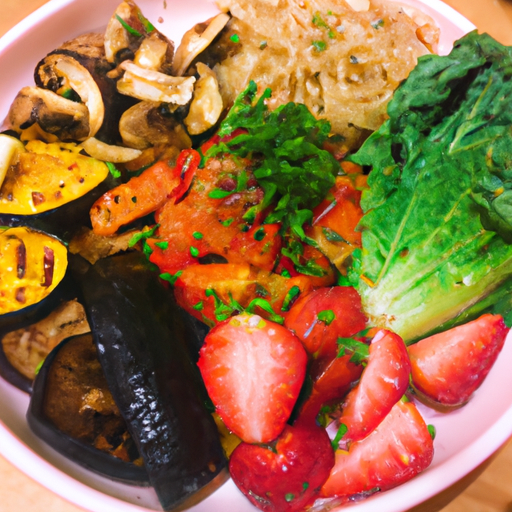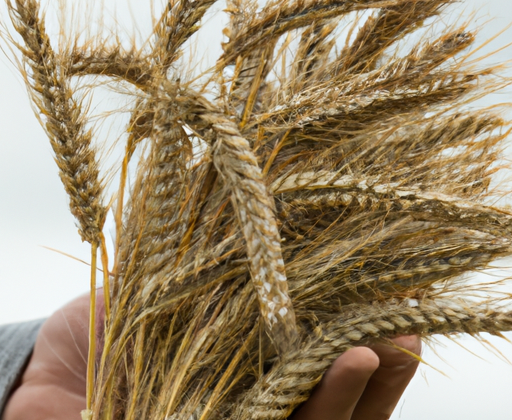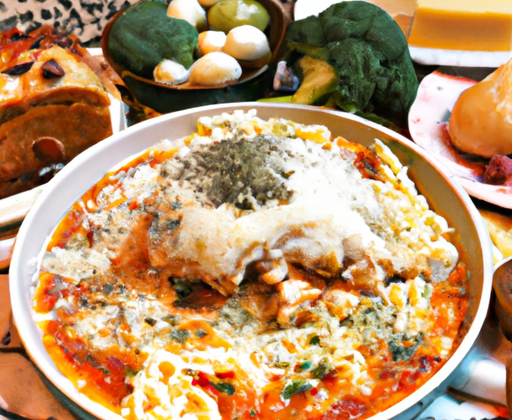Exploring the Link Between Food and Cultural Identity
Hey there! I’m excited to delve into the fascinating topic of how food is linked to cultural identity. First off, let me define cultural identity – it’s essentially the unique characteristics, values, beliefs, and traditions that define a group of people. Food plays a significant role in shaping cultural identity, not only as a source of sustenance but also as a means of conveying the history, cultural values, and traditions of a group of people through the flavors and preparation methods.
As someone who loves to travel, I’ve tasted a variety of cuisines across different cultures, and it’s always an eye-opening experience. Through food, I’ve learned about the customs, stories, and beliefs of different cultures. So, let’s explore the fascinating link between food and cultural identity together!
Exploring the Role of Food in Ancient Cultures
Let’s take a journey through time and explore the historical context of the relationship between food and cultural identity. Food has been an integral part of human culture since ancient times. Each culture has its own unique way of preparing and consuming food, revealing a deep connection between cuisine and cultural heritage. For example, in ancient Greek culture, food was seen as a symbol of hospitality and was used to establish social relationships. The ancient Romans, on the other hand, were renowned for their lavish feasts and the use of food as a way to display wealth and power.
In addition, food has played a significant role in religious and spiritual practices throughout history. In many ancient cultures, food was seen as a sacred offering to the gods or as a way of connecting with the divine. For example, in Hindu culture, food is considered sacred and is prepared with great care and reverence, often as an offering to the gods.
The way that food was harvested, prepared, and consumed in ancient cultures was also deeply intertwined with the local environment and natural resources. For example, indigenous cultures in South America relied on the cultivation of maize and potatoes, which were well-suited to the local climate and soil conditions. They also developed unique methods of preparation, such as the use of lime to remove the outer layer of maize, which made it more nutritious and easier to digest.
Modern Context
Nowadays, our food choices are not limited to our own cultural heritage. With globalization and immigration, we have access to a wider variety of ingredients and flavors than ever before. This has led to the creation of fusion cuisines, which blend different culinary traditions to create exciting new dishes. As a result, food has become an expression of cultural identity in modern times. When I travel, I try the local food to get a sense of the place and its people. Food is universal, and it’s a way of communicating who we are to others. However, it’s important to note that food can also be a source of cultural tension. In some cases, people of different cultures have different dietary restrictions or preferences, and this can lead to misunderstandings and conflict. In addition, globalization has led to the homogenization of some cuisines, with fast food chains and processed foods becoming increasingly prevalent. As a result, it can be difficult to preserve traditional cuisines and foodways that are an important part of cultural identity. Despite these challenges, I believe that food will continue to be a powerful way to connect with others and express our cultural identities. As individuals, we can make conscious choices about what we eat and where we source our food from. We can support local farmers and small businesses, and seek out authentic food experiences when traveling. By doing so, we can help preserve the diversity and richness of our culinary traditions, and celebrate the ways in which our differences make us stronger.
Conclusion: So, what’s the verdict?
Well, folks, it’s clear that food plays a significant role in cultural identity. From the ancient times when communities used food to connect with the divine, to modern times where we can use food to showcase our cultural heritage, food has always been and will always be a vital aspect of our identities. We’ve seen that traditional cuisines remain an excellent representation of cultural heritage, and we’ve also looked at how globalization and immigration have affected our food choices. We’ve learned that food has become an expression of cultural identity in modern times. As someone who loves food and can’t resist a good meal, I couldn’t agree more. I firmly believe that the meals we eat and the way we prepare them say much about who we are and where we come from. Whether we are celebrating a holiday or a special occasion, cooking family recipes, or trying new dishes, food connects us to our cultural roots and can bring us closer together. In closing, the next time you sit down to relish a meal, take a moment to appreciate the gift of cultural identity and the bond that food creates between all of us.
Food & Culture FAQs
Does culture influence food choices?
Food is a huge part of my cultural identity. As someone who grew up in a family that loved to cook, eat and share meals, food has always been central to my understanding of who I am and where I come from. My family’s cuisine, for example, was heavily influenced by our ancestors’ homeland and the region we grew up in. Every recipe, spice and ingredient used in our cooking tells a story of our culture and history. For instance, our cuisine consisted mainly of rice, beans, and tortillas- staples of our Hispanic cultural heritage. These culinary customs were passed down through generations, and as a result, our family carries a sense of tradition that is deeply rooted to our culture.Culture definitely influences food choices. When you think about it, every food has a story behind it, a reason why it’s considered acceptable to eat or not. Some cultures are known for being more adventurous in their food choices, while others prefer to stick to traditional dishes. How people eat, what they eat and how they prepare their food is tied to a cultural identity that is unique in its own way. People’s food choices can be influenced by where they live, their heritage, religion and customs, among other factors. For example, In India, they have a religious taboo against eating beef, so they rely heavily on vegetarian food. Similarly, in Jewish culture, there are dietary laws which prohibit the combining of certain foods or the consumption of certain animals. Understanding that food is more than just something we eat, it is a lens into someone’s cultural identity, is essential in bridging the divide between different cultures.
Why is eating together important in culture?
Food is an essential part of any culture as it often reflects both the history and traditions of a particular group of people. As someone who has travelled all over the world, I have noticed that different cuisines showcase unique ingredients and spices, cooking methods, and eating customs that are often rooted in the history of the region. Eating together is also essential in many cultures because it brings friends, family, and community members together for socializing and bonding over shared experiences.
Sharing meals with loved ones is an opportunity to build and reaffirm relationships, it helps to get people to know each other on a deeper level. In some cultures, meals are seen as a form of respect and hospitality, and they are a way of showing appreciation and gratitude to guests or visitors.

What’s more, community values and rules of engagement are often seen during meal time – who gets served first, how to hold cutlery, how to express gratitude, and when to leave the dinner table. These customs can teach respect and mutual understanding to people across different cultures.
In conclusion, food is much more than sustenance, it is a way people connect to their history, their culture, and each other. Sharing meals together is an opportunity to bond with people, share stories, and create cherished memories.
how is food related to cultural identity?
Well, as a machine learning language model, I don’t have a cultural identity. However, I can tell you that food is an essential part of cultural identity. Each culture has its unique dishes that are integral to people’s way of life. For instance, American culture is stereotypically associated with hamburgers and hot dogs, while Indian culture is associated with curries and biryanis. A particular cuisine can reveal information about a region or a country’s geography, climate, history, and religion. Additionally, the ingredients, spices, and cooking methods used in a cuisine embody the cultural values and beliefs of a people. Food can be a form of communication that conveys traditions, practices, and cultural identities. In many cultures, food represents hospitality and generosity. It is a way of welcoming guests and demonstrating respect. In some cultures, there are traditional feasts and ceremonies that are centered around food. For example, in Japan, they have a tea ceremony, and in Mexico, they celebrate Dia de los Muertos with elaborate feasts. These customs and practices define who a people are and what they stand for. In conclusion, food plays a critical role in shaping cultural identity. It is not just about satisfying hunger; it is about preserving traditions, expressing hospitality, and communicating values. Each culture has a distinct culinary identity that reflects its history, geography, climate, and religion. Therefore, it is essential to appreciate and celebrate diverse culinary traditions to understand the essence of different cultures better.

